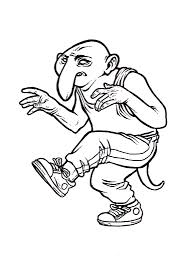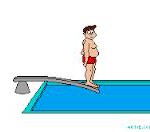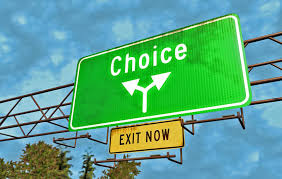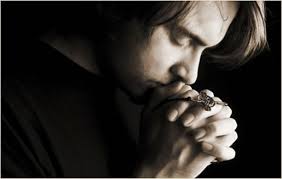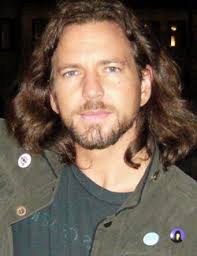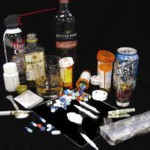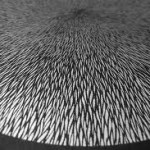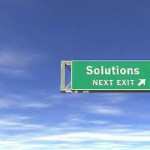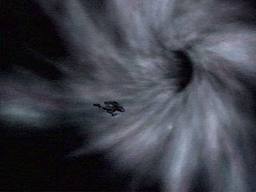Hi people. I wanted to write one last post before leaving for India. (tomorrow!!!) So here’s something that’s been on my mind a lot lately. We have discussed many ways of seeing addiction and recovery in terms of choice. We mostly agree that, if using or abstaining is a choice, it’s a very unusual kind of choice. It is often irrational, it changes over time, it becomes more pressing (or less pressing) as the moment of action approaches, it is highly dependent on biases and motivational undercurrents, etc, etc. If it’s a choice, it’s not the kind of choice you make when you decide what movie to watch or what you’re going to make for dinner.
Or is it?
Here are a couple of quotes from a paper about intentions, by a philosopher named Marc Slors (Philosophical Psychology, 2013).
[T]here is considerable evidence against the causal efficacy of proximal (short-term) conscious intentions… [my italics]
Libet, Haggard, and others…showed that simple conscious motor intentions occur only after the unconscious neural onset of actions.
Um, what?! Slors reviews studies (both behavioural and neural) that show that people’s actions are not determined by their preceding intentions. In other words, our actions happen without our intentions, or despite our intentions, or preceding our (imagined) intentions…all the time! Not only when we “impulsively” or “compulsively” reach for the bottle or the phone to get high. If you believe the results of this research (and I don’t see how you can avoid it), it makes your head spin. It blows a big hole in the idea of “free will.” And yet free will is a fundamental assumption we make all the time. To imagine that free will doesn’t exist is almost blasphemy. Yet it makes addiction a lot easier to understand…
A classic experiment demonstrating the irrelevance of “choice” or “intention” would be this. Subjects are asked to make a simple choice, with very little consequence for anything. For example, they might choose whether to press the button showing the red circle or else the one showing the green square. Once they’ve made the choice and seen the result, they are asked about it. Did you choose which button to press? When did you make the choice? Without fail, people report that they made the choice from a moment or two to several seconds before they pressed the button. But in fact, the likelihood of pressing one button or the other was strongly determined before that time. It was already predicted by cues (words, images) given to them (without their noticing) before they (think they) made the choice. For example, cues like the pairing of pleasant pictures with the colour green (or with squares) and unpleasant pictures with the colour red (or circles). Other studies have found that brain activation patterns strongly predict the choices people make, before they themselves have any conscious idea of what they are about to choose.
Here’s another quote from Slors:
In this experiment…thoughts are “inserted” into the heads of people just prior to their being coerced, unbeknownst to them, to perform an action that matches the thought. In such cases, people turn out…to think that their action was caused by their thought.
Well I find this stuff completely astounding. So, whether I make fish or chicken tonight will not depend on my thoughts just before “making the choice.” I’ll think it will, but it actually won’t. Rather, it will depend on unconscious processes already at work. These will probably include how I feel about the last few meals I’ve made, how I think my wife and kids will respond to soy sauce, etc. But I won’t be conscious of any of that. I’ll think I’m simply making a free choice.
So, immediate intentions (called “proximal intentions”) really don’t have much effect on our actions. But that’s not the end of the story. Long-term intentions (called “distal intentions”) do have an impact on our actions. A very strong  impact. For example, I’ll be flying to India tomorrow. That action will have nothing to do with any choice I make between now and then. That action was determined by what I decided several months ago. I decided I wanted to go on this trip and I bought myself a ticket — which took an hour of fussing online. Get the point? Free will isn’t dead…but it works in a very particular way.
impact. For example, I’ll be flying to India tomorrow. That action will have nothing to do with any choice I make between now and then. That action was determined by what I decided several months ago. I decided I wanted to go on this trip and I bought myself a ticket — which took an hour of fussing online. Get the point? Free will isn’t dead…but it works in a very particular way.
I’ve written various posts and comments about the fact that addicts have an especially hard time making good choices because the immediate goal (e.g., getting high) overtakes the whole motivational system (the striatum) and overwrites the value of long-term goals — like having a bank account and staying out of jail. But it turns out that this is just a more extreme version of a very general issue: immediate choices are illusory — they are already determined by the value you have attached to something. The fact that you just love cocaine, and you’ve devoted about a billion synapses to fondling it mentally, is going to determine whether you get high tonight — not the choice you make in the next two hours.
What I’m getting to is this. If we recognize that short-term, proximal choices are weak, meaningless or illusory — if we recognize that only long-term, distal choices actually determine our actions — then the only way to quit being an addict  is to plan ahead. The only way to stop is in advance of the moment. This may not be big news to some of you. We already know (don’t we?) that you have to get rid of all the booze in the house if you want to make sure not to drink later on. And we know (don’t we?) the value of rules, like “I will never drive home on Yonge Street after work, because that would take me right by the liquor store.” Or telling your buddy, Joe, that the next time he calls you you’re going to call the police — because you have to make sure, in advance, that you will never speak to him again. Or joining a group. Or telling your doctor, look, Doc, I have a problem… Or maybe just emailing him or her. That would just take a moment. You could do it right now. That’s a version of “sneaking up on choice” (recent post), because you can do it without thinking about it intently (this time, anyway).
is to plan ahead. The only way to stop is in advance of the moment. This may not be big news to some of you. We already know (don’t we?) that you have to get rid of all the booze in the house if you want to make sure not to drink later on. And we know (don’t we?) the value of rules, like “I will never drive home on Yonge Street after work, because that would take me right by the liquor store.” Or telling your buddy, Joe, that the next time he calls you you’re going to call the police — because you have to make sure, in advance, that you will never speak to him again. Or joining a group. Or telling your doctor, look, Doc, I have a problem… Or maybe just emailing him or her. That would just take a moment. You could do it right now. That’s a version of “sneaking up on choice” (recent post), because you can do it without thinking about it intently (this time, anyway).
Rules and plans are not only important for choosing to quit. They are almost the only things that work. (Mindfulness is great too, surely, but then you also have to plan to meditate regularly.) Proximal intentions don’t matter. By the time you are getting close to the point of action, the dye is already cast. Setting up  intentions in advance is called “self-programming” by Slors, and I think that’s a great name for it. You are indeed programming your own future, by changing contingencies, determining circumstances, setting up non-negotiable outcomes. You are programming your life, and your brain, and your environment, your unconscious as well as your conscious mind, by intending and planning what’s going to happen.
intentions in advance is called “self-programming” by Slors, and I think that’s a great name for it. You are indeed programming your own future, by changing contingencies, determining circumstances, setting up non-negotiable outcomes. You are programming your life, and your brain, and your environment, your unconscious as well as your conscious mind, by intending and planning what’s going to happen.
Now that’s free will. Use it wisely!
P.S. I will be giving your regards to the Dalai Lama. Seriously. Enough of you have asked me to do that…I figure the feeling comes from all of us. After all, the dude must be pretty interested in addiction to have a five-day meeting on the subject.

